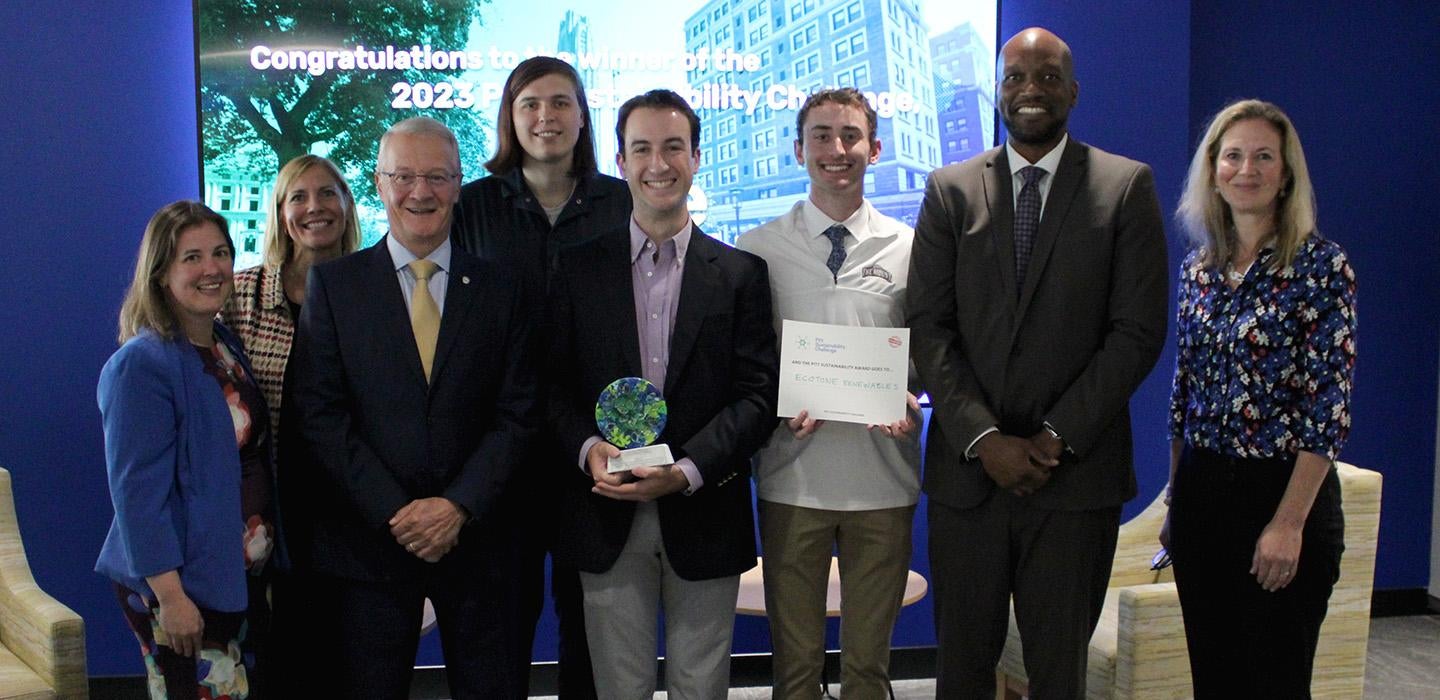
Subscribe to Pittwire Today
Get the most interesting and important stories from the University of Pittsburgh.Ecotone Renewables was the big winner last Thursday at the Pitt Sustainability Challenge Finalist Pitch Event. As a result, Ecotone will receive $300,000 to implement their anaerobic digestion technology on or near Pitt campuses, diverting carbon emissions by converting local food waste into nutrient-dense, ready-to-use fertilizer.
All five finalists presented initiatives that would support Pitt’s goal of reaching carbon neutrality by 2037, but each proposal utilized a unique approach, including ideas to replace inefficient laboratory freezers and utilizing abandoned mines for temperature control. To deliver a structured and fair challenge that didn’t limit the scope of possible solutions, Pitt partnered with Carrot, a globally recognized organizer for creative challenges.
“We tried very hard not to predicate any outcome but create an open opportunity welcoming diverse ideas, which was fun,” said Aurora Sharrard, Pitt’s executive director of sustainability. “Some proposals had research aspects, some would be integrated into the student experience, and some were specific to our Pittsburgh and/or regional campuses. We were really open — and that is the beauty of the challenge process.”
Even though only one project could be selected as a winner, it’s not the end of the road for the other proposals. “We do hope that all finalists’ ideas will advance in some way,” said Sharrard. “We have a very engaged student population on sustainability topics. They want campus to be a living laboratory – and we help implement those ideas daily.”
Jaison Morgan, CEO of Carrot, explained how contests like the Pitt Sustainability Challenge can lead to more than just one solution. “It is like running a survey — and you are presented with 20 different ways to activate your campaign. At the same, everyone proposing an idea gets out into the challenge community to talk with stakeholders and engage with experts; they get excited and we found that a lot go on to implement those plans.”
Sharrard is already working on the logistics of the University’s partnership with Ecotone Renewables and making plans to integrate the five proposed anaerobic digesters across Pitt campuses over the next 1-2 years.
You don’t have to wait for the first ZEUS digester to arrive on campus later this year to get involved in advancing carbon neutrality: Visit Pitt Sustainability to learn about opportunities for students, faculty and staff.





